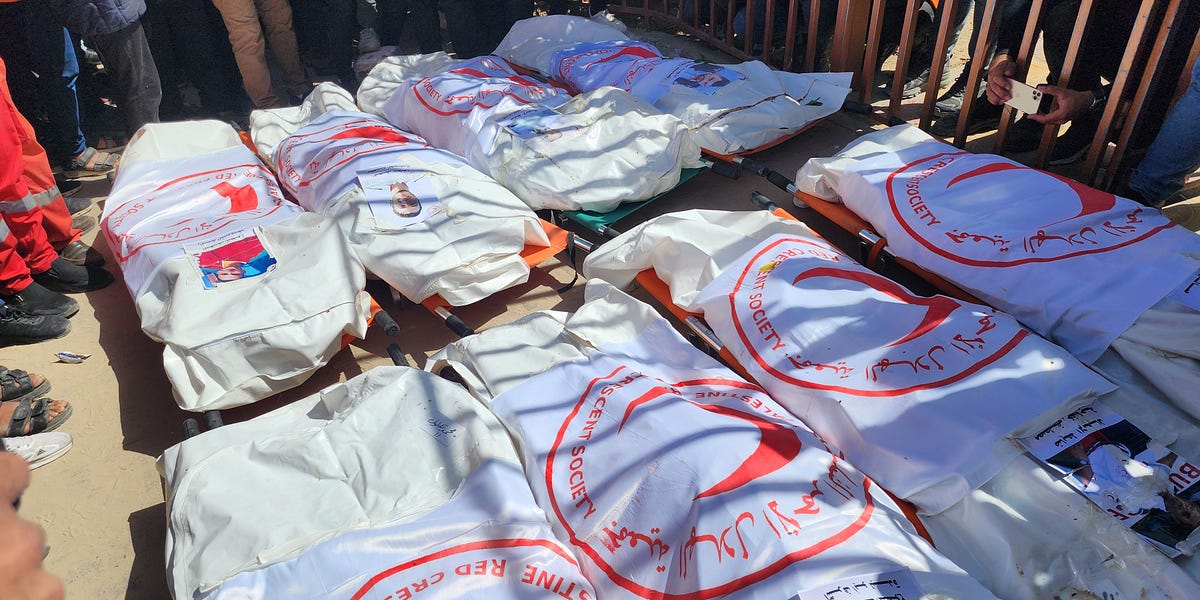Early in the morning on the day of the massacre, Abed said he and two of his colleagues, Mustafa Khafaja and Ezz El-Din Shaat, were dispatched to a home in western Rafah that had been bombed.
He was sitting in the back of the ambulance while Khafaja and Shaat were in the front, he said, when they came under intense direct fire from Israeli forces. Abed threw himself to the floor of the van. “I wasn’t hearing any sounds or words from my colleagues. The only thing I heard was their last gasp before they died,” he said.
“Suddenly, I heard people around me speaking Hebrew. Then, they opened the door and special forces came in. I recognized them from their uniforms,” he recalled. “They dragged me out of the car and took me to the sand nearby. They tortured me and beat me.” He said that, after this, he could not see much because they continued to push his face in the sand and then took him to a different location not far away. Israeli forces, he said, threw him into a ditch and repeatedly beat him with their rifles.
Abed was still nearby, and he said Civil Defense vehicles then arrived at the scene. “There were civil defense vehicles coming, so he [the soldier] fired directly at them. After that, he moved me to another location, put me behind a wall, and I saw red [license] plates…I couldn’t see the scene, but I heard gunfire.”


